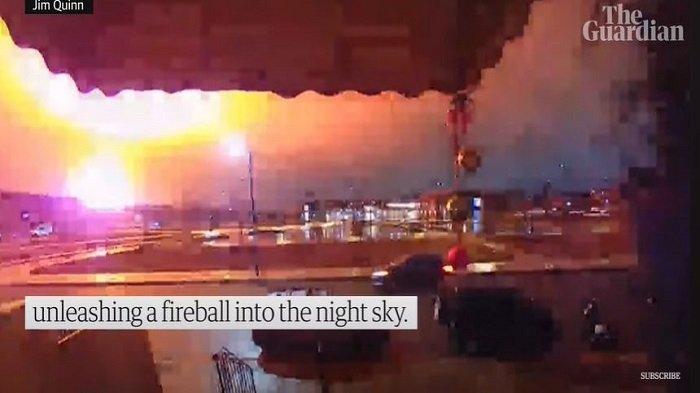Tempo Film Festival Discussion: Indonesian Film Production Constrained by Location, Budget, and Permits
The Film & Tourism Development Opportunities discussion held ahead of the peak night of the Tempo Film Festival on Wednesday, February 5, 2025.

TEMPO.CO, Jakarta - Filming locations are often a special attraction for the audience. Not infrequently, places that appear in films turn into new tourist destinations. This phenomenon was the main topic of discussion in the ‘Film & Tourism Development Opportunities’ discussion held ahead of the peak night of the on Wednesday, February 5, 2025, at Graha Bhakti Budaya, Taman Ismail Marzuki, Central Jakarta.
The discussion featured producer and founder of Relate Film Perlita Desiani, pop culture researcher Hikmat Darmawan, and Tempo editor Iwan Kurniawan. They also dissected the challenges of film production in Indonesia—from location search to complicated permits, to how local governments should respond to the trend of film-based tourism. This discussion was broadcast live on the YouTube channel on Saturday, February 1, 2025.
Challenges in Selecting Filming Locations
In the film industry, location is not just a backdrop, but also an element that builds and brings the story to life. As a filmmaker, for Perlita Desiani, the search for the ideal location begins at the scriptwriting stage. "From the beginning we started discussing, what location to use, what kind of set," he said.
For example, in his film, Pernikahan Arwah (2025) which carries the theme of Peranakan Chinese in the 1950s-1960s, location is a key factor. However, finding a suitable location is not easy. Many places are visually attractive but difficult to access or not ready to be used as filming locations. "When choosing a location for filming, I think it has to be the right one for the story," he said.
Permits and Incentives Are a Big Challenge in Indonesia
The biggest challenge in film production in Indonesia is permits. Filming locations in Indonesia, especially in Jakarta, are often more difficult to obtain permits than in abroad. Perlita emphasized that production costs often increase due to the lack of clarity on rates and complicated permits.
"It's difficult because there are so many parties who—why are they suddenly there," he said. He considered that certain parties suddenly asked for additional costs and made production costs increase. As a result, several producers chose to shoot abroad because the budget calculations were more certain. In several other countries, according to him, the permitting system is also more organized.
Perlita then emphasized the importance of clearer and more structured regulations for the film industry in Indonesia. He highlighted that currently there is no integrated system or mechanism that makes it easier for producers, both domestic and foreign, to take care of filming in Indonesia. "It would be very convenient if we had a government that already has clear guidelines. Anyone who wants to film in Indonesia, in Jakarta for example, must know where they have to take care of the permits. Now, that doesn't exist," he said.
In fact, in many countries, a system like this has been implemented well. Each region has its own incentive scheme—either in the form of a tax holiday, tax rebate, or budget support—which makes it easier for producers to design production budgets. If Indonesia could implement a similar policy, Perlita assessed that the national film industry would be more competitive.
According to Hikmat Darmawan, as a pop culture researcher, this problem could actually be overcome if the government was more serious about managing incentives. He also added that the team at the Ministry of Tourism and Creative Economy had previously conducted an in-depth study for three years. "The calculations are already there, down to the technical details. But it's still stuck at the Ministry of Finance, it hasn't gotten the green light yet," he said.
He considered that this obstacle was more due to policy factors at the decision-making level. "But this is also a matter of political will in the end, from the party that determines it," he added. If policies and regulations are improved, Hikmat is also optimistic that Indonesia can become a more attractive filming destination, especially in Jakarta. "If we concentrate on Jakarta, I think we have a big opportunity to push not only about permits, locations, or cashback, but also the infrastructure," he said.
The Phenomenon of Film-Based Tourist Destinations
Hikmat also sees that the spike in visits to film locations is not just a FOMO (fear of missing out) phenomenon, but rather part of a narrative-based tourism trend. For example, Belitung, which skyrocketed after Laskar Pelangi (2008), or the Chicken Church in Magelang, which was crowded with visitors after the film Ada Apa dengan Cinta? 2 (2016).
He sees this phenomenon as a form of the ‘postcard effect’—when a film functions like a digital postcard that introduces a place. He believes that films can make ordinary places into tourist destinations so that viewers want to come because they are fascinated by the landscape that appears on the screen. “Films function more as a medium for storytelling. While destinations now, the trend for tourism is narrative-based,” he said.
The former Deputy Chairperson I of the Jakarta Arts Council (DKJ) detailed that there are two types of locations that often go viral: tourist attractions that are already well-known but get new appeal from films, and locations that were previously unknown but get new attention because of cinema. However, not all areas are ready to face the surge in tourists.
"Our bureaucracy must be encouraged to respond immediately," said Iwan Kurniawan, Tempo editor. As a result, classic problems such as traffic jams, inadequate infrastructure, and other complaints such as damaged roads have emerged. The local government, said Iwan, must be more responsive in responding to this phenomenon.
Editor's Choice:
to get the latest news updates from Tempo on Google News



















